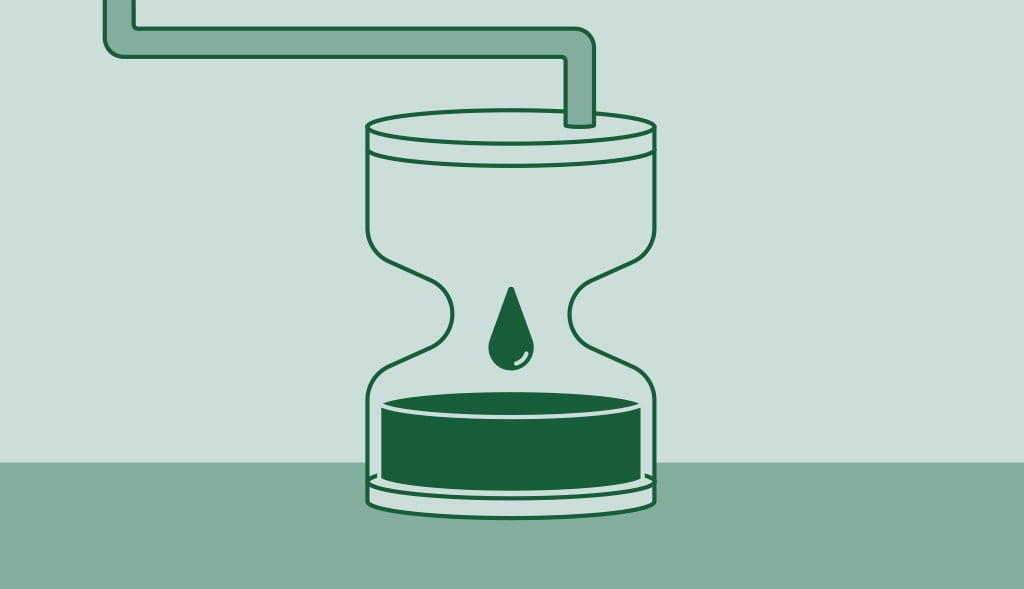Understanding Water Heater Anode Rod Problems

Water heaters are indispensable to every home, ensuring a steady supply of hot water for various purposes from bathing to cooking. However, like any household appliance, water heaters can also fall prey to problems, and a common one is related to the anode rod.
This article talks about issues with water heater anode rods. It helps you identify a bad rod, discusses different types of rods, and guides you on how to fix these problems.
Recognizing Water Heater Anode Rod Problems
Decoding the Symptoms of a Bad Anode Rod
The task of identifying a bad anode rod might seem challenging, as the symptoms can be subtle and easily confused with other water heater problems.
By understanding these symptoms, you will know how to tell if anode rod is bad, preventing more extensive damage to the water heater.
A distinctive rotten egg smell when you run hot water is a common sign of a bad anode rod. This smell often results from the rod’s deterioration, which triggers a reaction between the water tank’s bacteria and the water supply.
Another symptom pointing towards a faulty anode rod is inconsistent water temperature or almost no hot water. If your tank-style water heater can’t maintain a steady supply of hot water, it might indicate the rod is bad. A deteriorating anode rod cannot manage the electrolysis process in the tank effectively, causing uneven heating of the cold water entering the tank.
Additional Signs of Anode Rod Problems
While the most common bad anode rod symptoms include a rotten egg smell and inconsistent water temperature, other indicators are worth noting. For instance, a metallic taste in your water could suggest a corroded anode rod. Moreover, if your water appears rusty or muddy, it might be due to an anode rod issue.
Conducting a Physical Inspection
Physical inspection provides a surefire way to determine if your anode rod is bad. The rod is usually screwed into the top of the tank. You’ll need to drain some water from the tank using the drain valve, unscrew and remove the rod for inspection. A heavily corroded rod or one covered in calcium deposits is a clear sign that replacement is due.
Exploring Types of Anode Rods and Their Potential Problems
The Role of Sacrificial Anode Rods
Water heaters typically employ sacrificial anode rods, which can either be made of aluminum or magnesium. These rods serve a vital role in attracting corrosive elements in the water, thereby protecting the tank’s walls from damage. Over time, however, these rods deteriorate and fail, leading to issues with your water heater.
Magnesium Rods
Magnesium rods offer superior protection for your tank but tend to corrode more quickly, especially in hard water areas. A deteriorated magnesium rod can lead to various problems such as a rotten egg smell and inconsistency in water temperature. Some magnesium rods will react with the water chemistry.
If your cold water doesn’t have a foul odor, but your hot water smells like rotten eggs, it may be a chemical reaction inside your water heater and not a water quality problem.
In this case, the sulfurous odour is probably caused by water with a high magnesium content coming into contact with the sacrificial anode present in water heaters.
Aluminum Anode Rods
An aluminum rod, on the other hand, might last longer but offer less protection compared to magnesium rods. Like all anode rods, when they begin to deteriorate, they can present similar issues as seen with magnesium rods.
The Emerging Choice: Powered Anode Rods
Another type of anode rod gaining popularity is the powered anode rod. Unlike sacrificial rods that corrode over time, powered anode rods use electrical power to provide corrosion protection. They’re more durable and require less frequent replacement than sacrificial rods. However, their higher cost and requirement of a power source may not suit all scenarios.
Zinc Anode Rods
Aluminum zinc anode rod are another option, primarily made of aluminum with a small percentage of zinc. Like all anode rods, they can corrode and deteriorate over time, leading to the same set of challenges.
Replacing the Anode Rod: A Crucial Part of Water Heater Maintenance
Once you’ve established that your water heater anode rod is faulty, it’s essential to replace it promptly to prevent further damage to the water heater. While the replacement process isn’t overly complicated, it does require basic tools and a fundamental understanding of water heater maintenance.
Before you start, make sure to turn off the water supply and drain the tank through the drain valve. Then, unscrew the anode rod from the top of the tank, remove the deteriorated rod, and install the new one.
As you have come to understand, without protection, corrosion will damage your water heater tank. This could lead to reduced performance and a shorter service life.
Other Anode Rod Considerations
Beyond the basic knowledge of anode rod types and common problems, there are additional factors to consider. For instance, the size of your water heater tank influences the anode rod you should choose; larger tanks may require larger or even multiple anode rods.
The quality of your water supply is another consideration; harder water typically causes faster deterioration of anode rods. Furthermore, some anode rods can interfere with the function of water softeners, so compatibility is essential if you use such a system. Lastly, understanding local regulations and manufacturer warranties is crucial as unauthorized alterations can void warranties or infringe regulations.
All these considerations highlight the importance of personalized advice when dealing with anode rod issues and, whenever in doubt, consulting a professional is always recommended.
In conclusion, understanding the critical role of the anode rod and recognizing the signs of a bad one is a key part of maintaining your water heater. Regular inspections and timely replacements when necessary can help ensure the longevity and efficiency of your water heater.
Blog
Troubleshooting: Why Your Hot Water Heater Is Not Working
When you want a warm bath or shower but only get cold water, it can be really annoying. If your hot water heater isn’t working, […]
How Long Do Water Heaters Last? Much Shorter Than it Could!
How long do water heaters last is a very complex and difficult question to answer. We live in a society that increasingly understands the environmental […]

